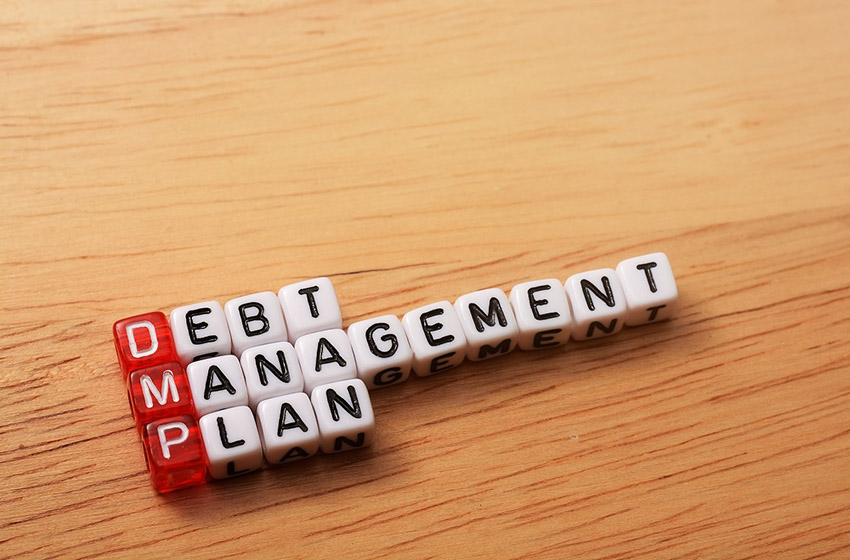
dices with word DMP debt management plan on wooden background
Record numbers of people are struggling under the burden of heavy debt, and when things start to get unmanagable it’s easy to try and ignore the situation in the vain hope that the problem will go away. Of course, we all know deep down that our debt situation has to be tackled, however stressful and scary the prospect might be. So how can you go about facing up to your debts?
The first thing to do is take a long look at your financial situation. How much money can you afford to devote to repaying debt? Are there any ways to increase your income? Are there any ways to reduce your expenses? By drawing up a sensible and honest budget plan you’ll at least know the true extent of your problems, and you’ll be taking the first step to getting back in control.
Next, you need to look at your repayments and expenses, and identify which are the most important. Your mortgage or rent should always be your number one priority, closely followed by essential bills such as electricity and water.
Make sure your budget plan will cover these essentials first, then add in the costs of daily necessities such as food. After you’ve done this you should have a figure for the total cost of your most important expenses. Subtracting this figure from your total income will give you the amount you now have to devote to reducing your debt.
It’s vital to cover the minimum repayments on as many debts as possible, as charges for late payments or missed payments will only push you deeper into the red. If you find that you don’t have enough spare funds to make all your minimums, then contact your creditors and politely explain that you’re experiencing financial difficulties and need help. This step can be daunting, but remember that the person you speak to will only be an employee of a company and won’t take the situation personally.
Most creditors will be happy to come to some arrangement with you to reduce your monthly payments, either by restructuring your debt over a longer repayment term, or switching to interest-only repayments for a while.
If after trying to renegotiate your debt you find you still can’t make ends meet, it could be time to reconsider a consolidation loan. Debt consolidation works by taking out a single large loan to pay off all your smaller, more expensive debts such as credit cards and the like. By getting a loan with a lower interest rate and spreading your repayments over a longer term, you can reduce your monthly bills quite substantially.
Unfortunately there are drawbacks to consolidation loans too. You’ll be going deeper into debt with yet another loan, and will probably end up paying more in interest charges in the long term. You might also find it difficult to get a consolidation loan unless you own your own home or have other assets to secure the loan with, and homeowners will risk losing their home in the future if they can’t keep up the repayments. For these reasons it’s best to think carefully before choosing the consolidation option.
No matter whether you choose a consolidation loan or not, it’s important to remember that debt affects huge numbers of people and it’s nothing to be ashamed of. The only way out of your debt problems is to face up to them, and try to get back in control of your finances.










